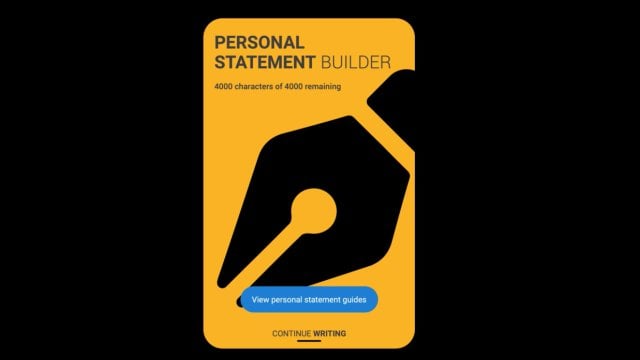Have you completed or are you thinking about an apprenticeship? Whether you’re a newly qualified apprentice dreaming about higher education (HE) or someone who has already completed an eligible apprenticeship and wants to upskill or reskill, there’s exciting news for you!
Starting in September 2025, UCAS will give you the opportunity to assign Tariff points to your apprenticeships—and this could be your gateway to the next stage in your education or career.
What are UCAS Tariff points?
In simple terms, Tariff points are a way to translate your apprenticeship into a numerical value used for entry requirements to higher education - think of them as a score that universities and colleges use to gauge whether you may be eligible for the course you're applying for. Traditionally, qualifications like A Levels and T Levels were assigned Tariff points, but now, apprenticeships earn you these valuable points too.
Learn more about Tariff points
Why Tariff points matter for apprenticeships:
How Do Tariff Points Work with Apprenticeships?
UCAS Tariff points are calculated based on your apprenticeships duration. For apprenticeships eligible under the system, the points are assigned like so:
| Duration | SCQF Credits* | Size band | Grade | Grade band | Tariff points |
|---|---|---|---|---|---|
| 36 months | 150+ | 14 | P | 8 | 112 |
| 24 months | 100-149 | 12 | P | 8 | 96 |
| 18 months | 72-99 | 8 | P | 8 | 64 |
| 12 months | <71 | 6 | P | 8 | 48 |
This alignment helps universities and colleges across the UK understand the size of your apprenticeship experience, providing a standardised framework to compare it with other qualifications.
*SCQF Credits apply to apprenticeships in Scotland only.
4 key benefits for recent apprentices
Use your Tariff points to show how your apprenticeship has prepared you for higher education.
Mix your apprenticeship Tariff points with A Levels, BTECs, or other qualifications to strengthen your application.
4 key benefits for mature students
Tariff points make it easier to re-enter education, no matter how long it’s been.
When can you use your apprenticeship for Tariff points?
If you’ve completed an apprenticeship and earned a relevant End-Point Assessment (EPA) and apprenticeship certificate, you’ll be able to use these to earn UCAS Tariff points starting in the 2026 application cycle.
This means if you’re planning to apply for higher education in 2026 or beyond, your apprenticeship achievements can formally contribute to your application. It’s an exciting step forward, ensuring the value of apprenticeships is recognised across the board.Why your Personal Statement matters more than ever
The new UCAS Tariff points system provides universities and colleges with a starting point to understand your apprenticeship experience, and remains a crucial part of your application - it is also a great way for you to highlight specific End Point Assessment grades if you studied your apprenticeship in England.
Here’s why:
- Highlight your skills: Use your personal statement to detail the transferable skills you’ve gained during your apprenticeship—like teamwork, problem-solving, and time management.
- Explain your achievements: Describe specific projects or challenges you tackled during your apprenticeship and how they’ve prepared you for higher education.
- Connect your experience to your goals: Show how your apprenticeship has inspired your choice of course and career path.
Build the perfect Personal Statement
Let UCAS help you with your personal statement with the Personal Statement Builder - a bespoke tool in the UCAS Hub that guides you on your personal statement journey. Visit the hub and start building today!
Visit now
Every apprenticeship matters
Even before the introduction of the UCAS Tariff system for apprenticeships, universities and colleges have valued apprenticeships as important qualifications and experiences. They’ve traditionally assessed apprenticeships on a case-by-case basis, considering the skills and knowledge you’ve gained.
This approach will continue—even if your apprenticeship doesn’t align perfectly with the Tariff system. Many universities will still look at apprenticeships as relevant experience, especially if you present it effectively in your application.
